Critical Corner: All Fours, Earth
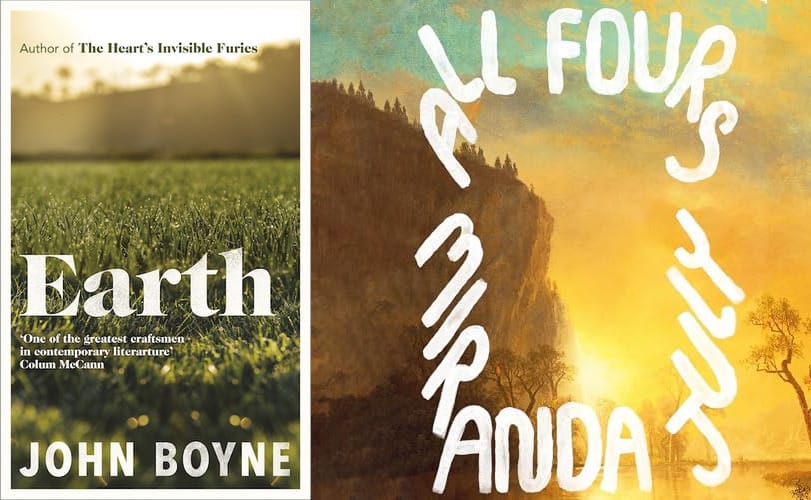
In this edition of Critical Corner, reviews of the new novels from Miranda July and John Boyne.
A new Miranda July project is an event – be it a film, a book, or some other kind of art. She’s obviously not the only artist working across forms at the moment, but if you ask the average person to think of an artist who works across visual, verbal and written mediums, her name would come to the top of mind pretty quickly.
All Fours is the second novel from July, after her 2015 debut The First Bad Man. The novel follows a perimenopausal woman who seems to be loosely based on July herself – being an “artist who achieved across forms at a young age” – as she embarks on what is meant to be a vacation in New York. Instead, after a chance encounter at a diner barely an hour away from her town, she ends up renting a motel room and embarking on a torrid, life-changing, affair.
I mention the character’s perimenopause because it’s not at all incidental. All Fours is unashamedly about a life change that over half of the people in the world go through, and July is equally unapologetic with depicting the protagonist’s headfirst charge into sexual obsession. The motel room that the characters ends up renting becomes a very literal Room of One’s Own™, as she completely redecorates it to serve as the base for her affair, and her grasps to understand why she, otherwise a happily married woman, is doing these things.
To put it bluntly: Shit gets weird. It also gets really, really funny. It would be extremely easy for All Fours to be a Reservation Road-style dredge through the the troughs of infidelity. Instead, July leans into the absurdism of what it is to suddenly go through a massive, chemical, life change and feel like nobody around you can understand it. Thankfully, she also realises what many people writing sex seem to forget; it can be fucking funny and ludicrous.
As with many Miranda July projects, there’s a tension with likeability. She gives us a flawed protagonist, tells us they are flawed, and proceeds to push them down the road to making what many right-headed people would call “very bad decisions”. There is also a protective sense, however. July critiques her protagonists but coats them with a shield – she can say it, but if you, the reader, don’t want to follow the character down the path, you’re the problem. As the book swerves into its third act, All Fours feels like it is providing an addendum to the protagonist’s life crisis, providing closing statements more than rounding off the story. For a novel that has otherwise been so uncompromising and so unapologetic, it ends up putting us at arms length by justifying what the protagonist does after the fact.
Body horror, sex comedy, marital drama. All Fours does it all, in the singular way that really, only Miranda July can, or would want to.
Look, sometimes you pick up a book and wonder where you’ve heard the author’s name before. I was about halfway through Earth, the new book from John Boyne, when I remembered three things about him.
- He is the guy who googled something for a book to include it and ended up using completely fictional items from The Legend of Zelda instead. (To his credit, he actually admitted this is what he did.)
- He got a lot of backlash over his book My Brother’s Name is Jessica, about a young boy coming to terms with an older sibling coming out as a trans girl. You needn’t think for very long about what the backlash might’ve been.
- He wrote The Boy With Striped Pajamas, one of those books that always raises my eyebrows when someone says it is a favourite of theirs.
None of that has very much to do with Earth except that it indicates that the book might not be, uh, very good. And I’ll be honest: Earth is one of the worst novels I’ve read this year.
At a slim 165 pages, Earth tries to squeeze in a lot. It follows Evan, an Irish footballer who has found himself embroiled in a sexual assault trial, accused of filming his teammate assaulting a young woman. Boyne skips back and forth across time, covering both the trial and the events that have led Evan to this point in his life.
Evan’s life is a sad one. He grew up on a small island as a gay boy with an unusual talent for football but no desire to pursue it, instead wanting to become a painter. He leaves the island for London, is brutally rejected by gallerists, and goes into sex work to make ends meet. After an especially degrading period with a long-term client, he walks into a football club and finds himself almost immediately put onto a team. This brings him into contact with Robbie Wolverton, privileged, handsome, talented, straight, and the teammate who Evan ends up filming. It’s a lot to happen to a guy, stretching the limits of plausibility even, and 165 pages is not really enough to contain it.
Mostly, it is unclear what story Boyne is attempting to tell with Earth, the second in a series loosely themed around elements. It touches on so many issues that it fails to really grapple with any of them – entitlement and privilege in sports, homophobia and classism within the same – and far too many of the characters end up as packages of tropes.
Evan, as the protagonist, is the primary victim of Boyne’s fifth-gear hurtling through the narrative. His stint as a sex worker is barely examined, and when it is, it is through the all-too familiar and frankly hackish lens of his own shame with it, and stereotypical stock characters (the sociopathic pimp, the abusive client). His relationship to his own sexuality is hazy, sometimes he is deeply in the closet, sometimes he is casual as you’d hope any queer man in 2020-something would be. A traumatic, tearful scene with his mother, later on in the novel, comes out of nowhere because it doesn’t reflect any of his behaviour delivered to us thus far. (It would probably make for a good awards reel clip in a future adaptation.)
Most galling are the trial scenes, rendered flatly and mostly through dialogue. There’s no scene-setting, no sense of tension, or interrogation into what any of the characters are feeling. Too often, they feel like scenes from the back half of a Law and Order episode, with lawyers barking stock phrases and the victim breaking into tears just when it makes sense to in the narrative. When you compare this novel with something like Claire Baylis’ Dice, so well researched and laser-focussed in what it is saying, Earth comes out looking much poorer.
When Earth wraps up, with a clunky reference to its own title, it feels fitting. It also feels more than a little smug. Boyne has ticked off all the boxes we expect him to, as well as a few clunky ones we wish he didn’t, but he hasn’t dived deep into anything. This isn’t an examination of anything. Boyne doesn’t have a distinct point of view on any of the “issues” it touches on. Privilege is bad, entitlement is bad, homophobia is unfortunate, classism is too. We know, and so what?
Probably so a few – and probably very many – readers can say they read a book about Important Things. And also, probably, so Boyne can say he wrote a book about Important Things™ too.
All Fours and Earth are available in book stores now.
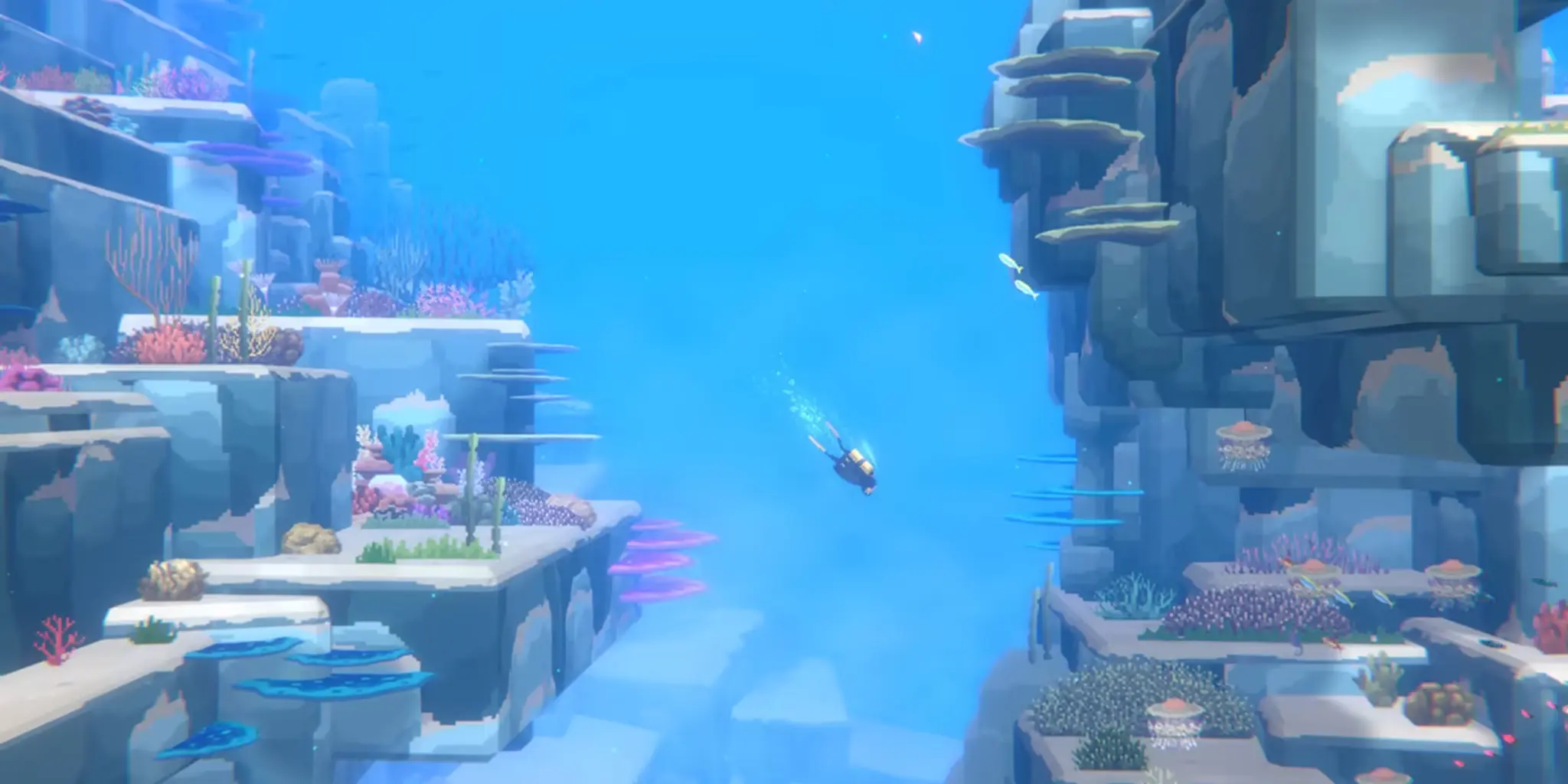
Other Things I’ve Consumed
- I am very late to the party here, but I am deeply enjoying Dave the Diver. It is one part diving simulator, one part sushi restaurant simulator, and one part resource management. It’s charming as hell, and the gameplay loops are addictive as hell.
- I’ve been going to a lot of Comedy Fest shows, many of which have already closed, but the one I can recommend is The Myth-Adventures of Vincent Andrew-Scammell which has one more show on Saturday night!
- Justin Elizabeth Sayre is an artist who I aspire to be more like, and I’ve recently done a deep dive into their work and I could not recommend it any higher. Their stand-up special Justin Elizabeth Sayre is a 40 Year Old Woman is probably the best I've seen all year.
Things to Read
- Anna Rawhiti-Connell for The Spinoff wrote this sober piece and brings some necessary sanity to whatever the hell our deputy prime minister is saying about toilets.
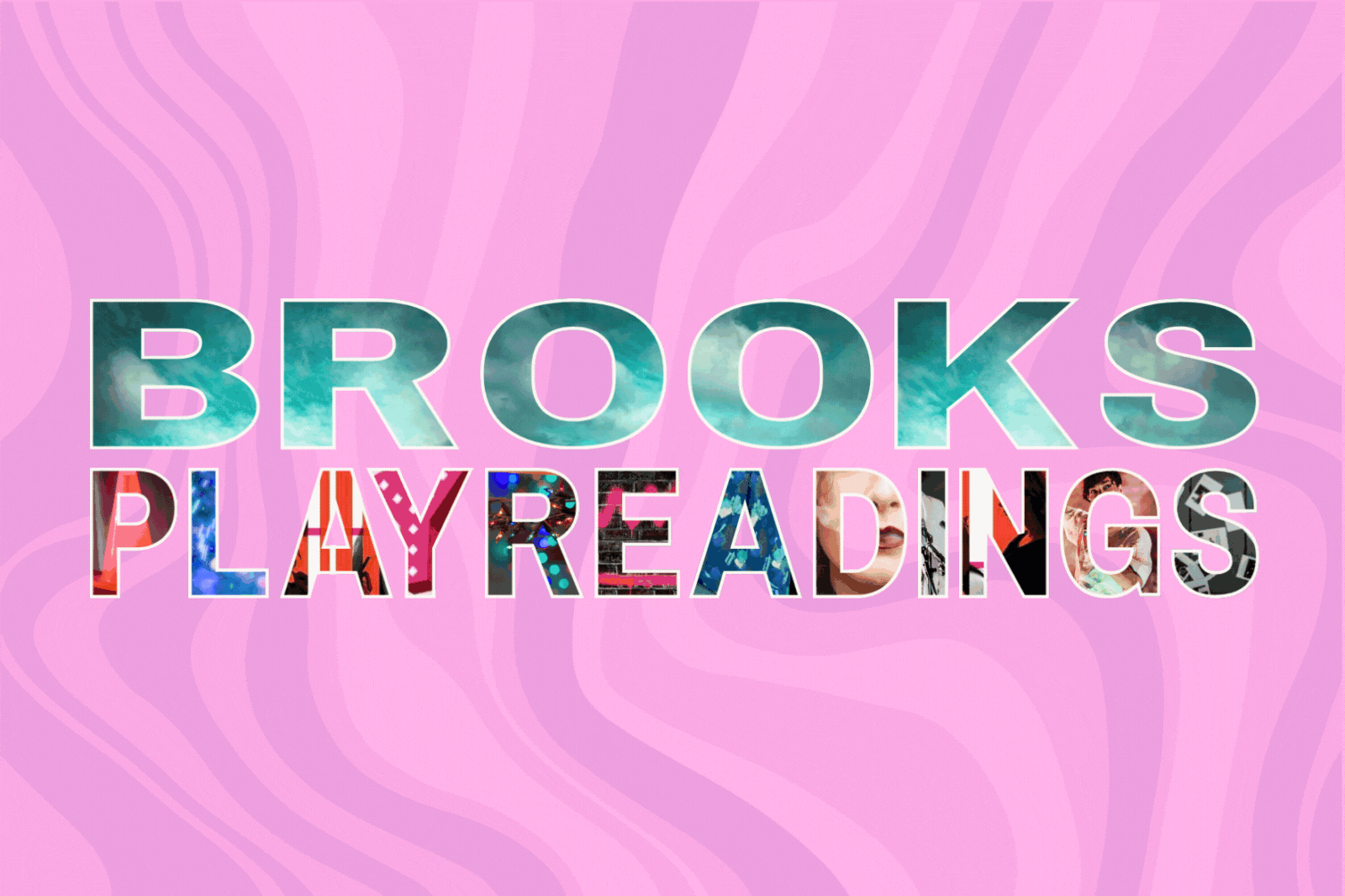
Self-Promo
- If you happen to be in Auckland in June, I’m doing three readings of new work at Basement Theatre. One of these is This is My Story of Us (a queer love story which just won the Adam NZ New Play Award), one is The Boy Trip (a very silly and very gay adaptation of The Lady Eve) and another is Boy Meets Man (a play I am currently writing!). You can book tickets here. I’ll be announcing casts next week!
- Again, if you happen to be in Auckland in June and also a theatre practitioner who wants to upskill on script development and rehearsal room processes, I am part of Groundwork alongside Miriama McDowell, Jason Te Kare, Shane Bosher and Allison Horsley, taking place on June 9. You can find out more about it from info@playmarket.org.nz
Writing and reporting takes time, and if you want to support the amount of time it takes (and ensure that the scant amount of meaningful coverage of local art can continue), please considering supporting Dramatic Pause with a paid subscription ($8 p/m, $60 p/a) and if you can't afford a paid subscription, please share the work with your networks!
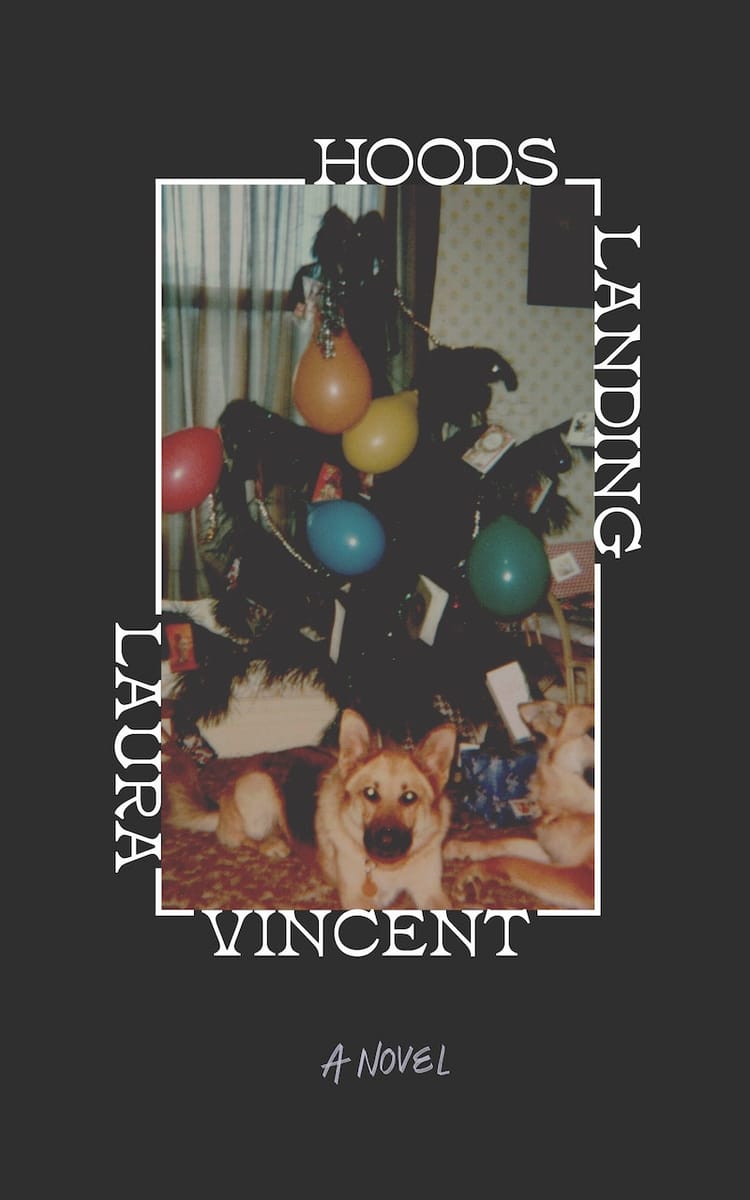
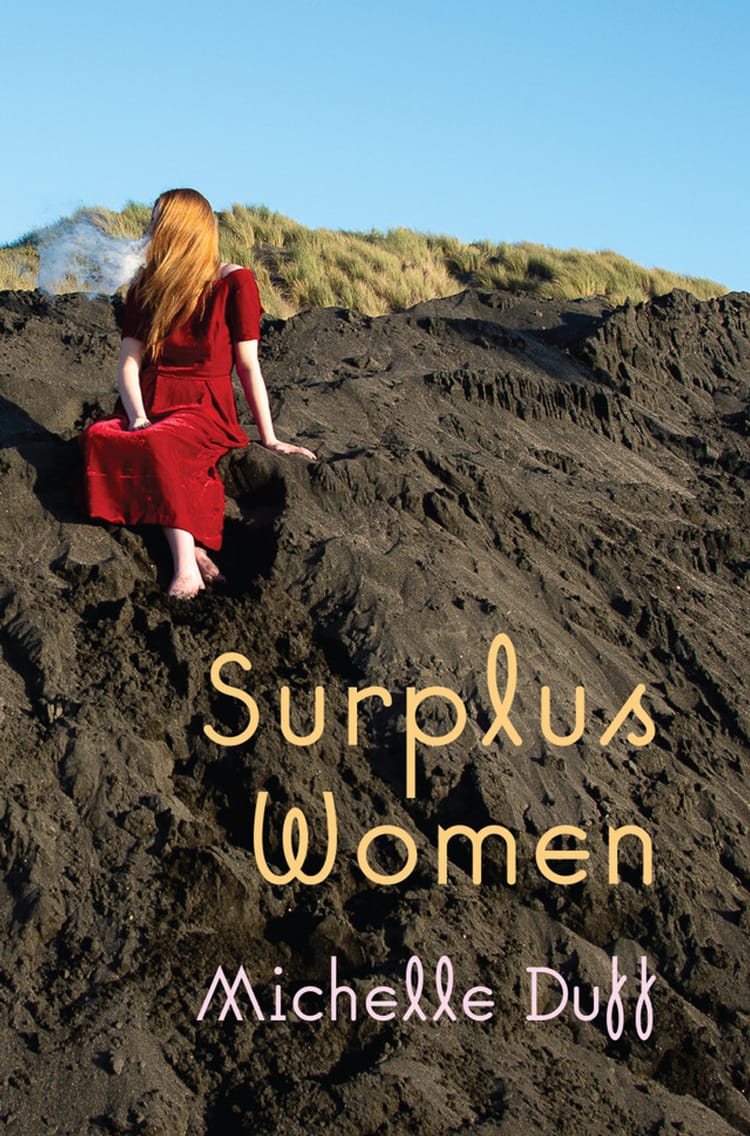
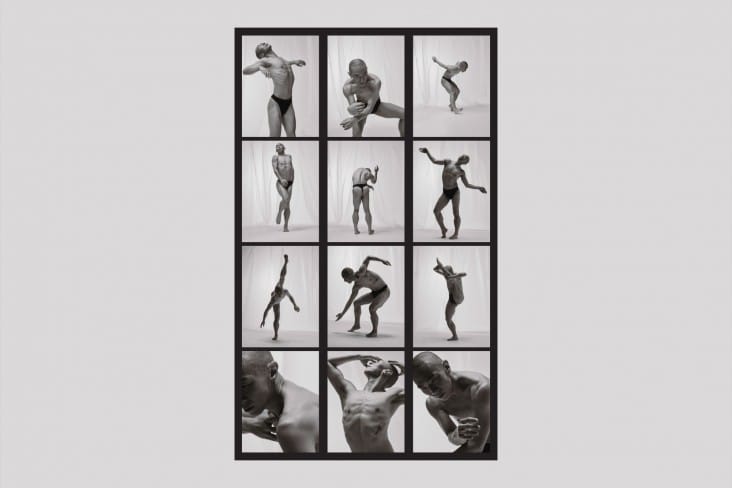
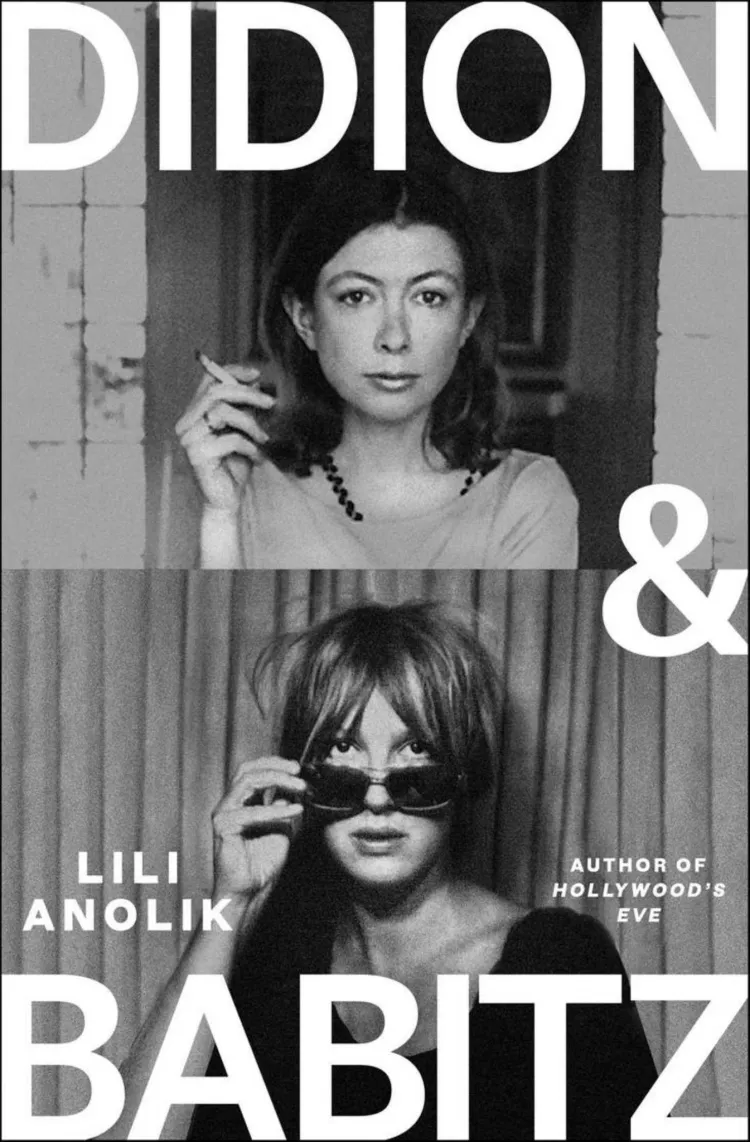

Member discussion